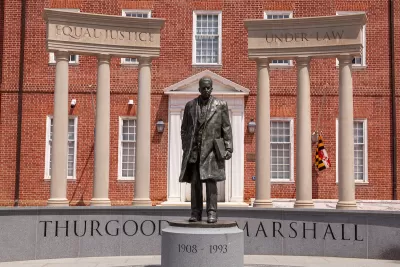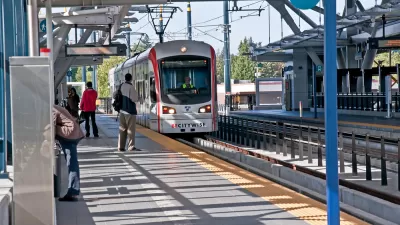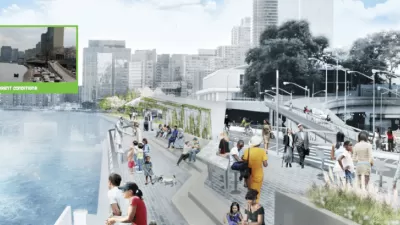The legal controversies over a zoning amendment approved in 2019 went all the way to the top court in the state of Maryland, but by the time the court ruled, the Bowie City Council had already repealed the amendment in question.

A decision by the Maryland Supreme Court would have cleared the way for the redevelopment of townhomes on land occupied by a struggling airport in Prince George County, if the Bowie City Council hadn’t already changed its mind about a zoning amendment required to make the project happen.
“Many community members opposed the amendment, which singled out the Freeway Airport property to allow for higher-density housing than some surrounding areas,” according to an article by Madeleine O’Neill. “A group called the Concerned Citizens of Prince George’s County challenged the text amendment in court after it passed in 2019.”
“The airport is intended to be the only property affected by the amendment — which the Concerned Citizens group pointed to as evidence that the change violated the ‘uniformity requirement’ by treating a single property favorably,” reports O’Neill.
The Maryland State Supreme Court found, however, that the zoning amendment “furthered a valid public purpose and did not discriminate between similarly situated properties” (because there are no similarly situated properties).
But this story has a twist: a change of elected representatives on the Bowie City Council began their tenures in the intervening years and rescinded the zoning amendment before the Supreme Court could rule.
“The Concerned Citizens group asked to dismiss the case because the new bill rendered the legal battle moot,” according to O’Neill. “But the Supreme Court agreed to hear the case anyway,” expecting that the issues at stake in the case would set precedent for future land use decisions.
FULL STORY: Md. Supreme Court upholds zoning amendment to allow PG County airport redevelopment

Alabama: Trump Terminates Settlements for Black Communities Harmed By Raw Sewage
Trump deemed the landmark civil rights agreement “illegal DEI and environmental justice policy.”

Planetizen Federal Action Tracker
A weekly monitor of how Trump’s orders and actions are impacting planners and planning in America.

Why Should We Subsidize Public Transportation?
Many public transit agencies face financial stress due to rising costs, declining fare revenue, and declining subsidies. Transit advocates must provide a strong business case for increasing public transit funding.

How Housing as a Financial Product Harms Communities
Institutional buyers who treat housing as an investment product become disconnected from the impacts of higher rents, displacement, and housing instability.

Blinded by the Light: When Brighter Headlights Decrease Safety
Bright LED headlights can create glare and reduce visibility for other drivers and pedestrians.

Study Links Covid and Poor Driving
The effects of the virus, including ‘brain fog,’ can make driving more difficult and dangerous.
Urban Design for Planners 1: Software Tools
This six-course series explores essential urban design concepts using open source software and equips planners with the tools they need to participate fully in the urban design process.
Planning for Universal Design
Learn the tools for implementing Universal Design in planning regulations.
Caltrans
Smith Gee Studio
Institute for Housing and Urban Development Studies (IHS)
City of Grandview
Harvard GSD Executive Education
Toledo-Lucas County Plan Commissions
Salt Lake City
NYU Wagner Graduate School of Public Service





























